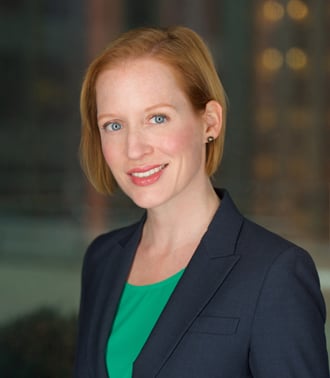Kaye Scholer Obtains Complete Victory for CLS Bank in Major Business Method and System – Patent Litigation Confronting Bilski-Related Issues
Kaye Scholer obtained summary judgment for its client CLS Bank, in litigation asserting patent infringement under four different U.S. patents directed to methods and systems for exchanging an obligation. The CLS methods and systems that were accused of patent infringement are used to settle most of the world’s foreign exchange transactions for its 60 Settlement Members, with an average daily value of about $4 trillion. The U.S. District Court for the District of Columbia ruled that each and every patent claim asserted by Alice Corporation against CLS covered non-patentable subject matter and was invalid. The asserted patent claims involve methods claims, system claims and product claims. Specifically, the claims involve methods of exchanging obligations between parties if there is adequate value in accounts maintained by an independent institution, computerized systems that implement the methods, and computer products employing software to carry out the methods.
In a sweeping opinion that substantially adopted CLS’s position, the Court “agree[d with CLS]” that Alice’s claims are directed to an “abstract idea” involving a “basic business or financial concept much like those struck down in [the US Supreme Court’s recent decision in] Bilski.” The Bilski decision had dealt only with methods. The Court’s decision in the CLS case extended Bilski’s reasoning to invalidate “abstract” methods implemented on a general purpose computer, and computer systems and products configured to carry out the method. The decision is significant because among other things it addressed numerous questions left unanswered by the U.S. Supreme Court’s decision last year in Bilski v. Kappos, 130 S. Ct. 3218 (2010), including the scope of unpatentable abstract ideas involving business and financial concepts, the effect of implementing business methods on a general purpose computer, and the patentability of computer readable storage media with computer readable program code for implementing such business methods. The decision also deals with the question of what is a “particular machine” for purposes of satisfying the “machine or transformation” test addressed in Bilski and which, the Court stated, “informs” its decision regarding whether the method is “abstract” and therefore invalid. The Court also explicitly agreed with CLS that “a computer system merely ‘configured’ to implement an abstract method is no more patentable than an abstract method that is simply ‘electronically’ implemented.”
The Kaye Scholer team for CLS Bank was led by William A. Tanenbaum and the case was argued by Steven J. Glassman. Abigail Langsam and David Soofian were also part of the team.

